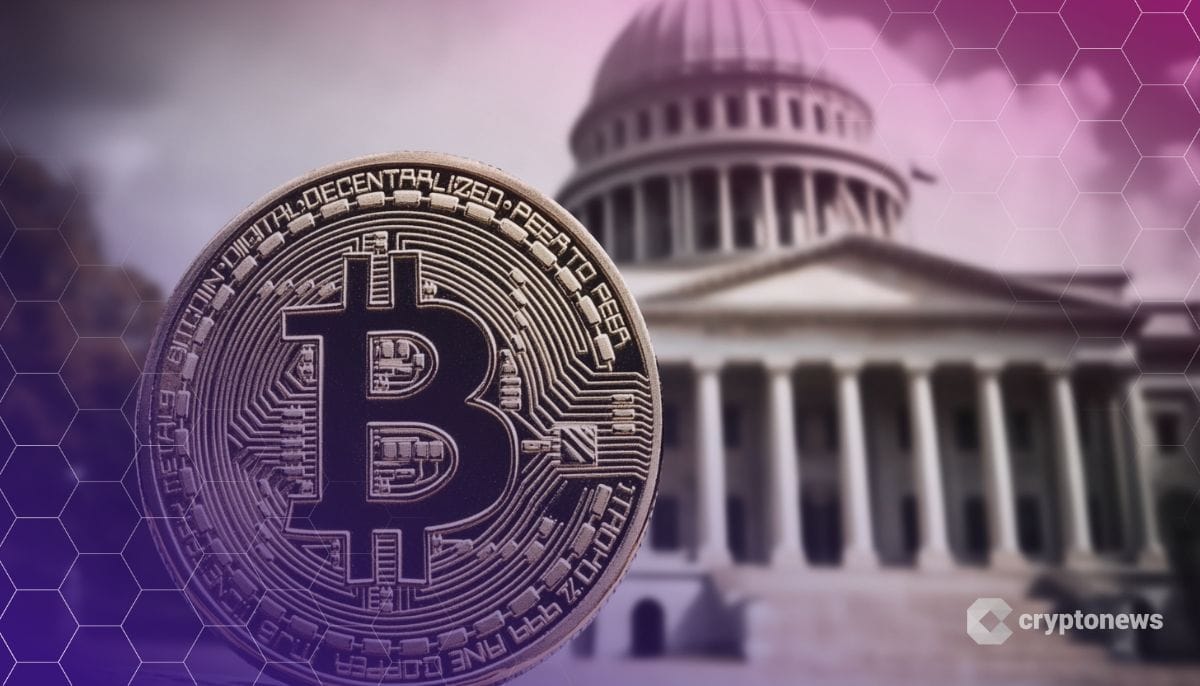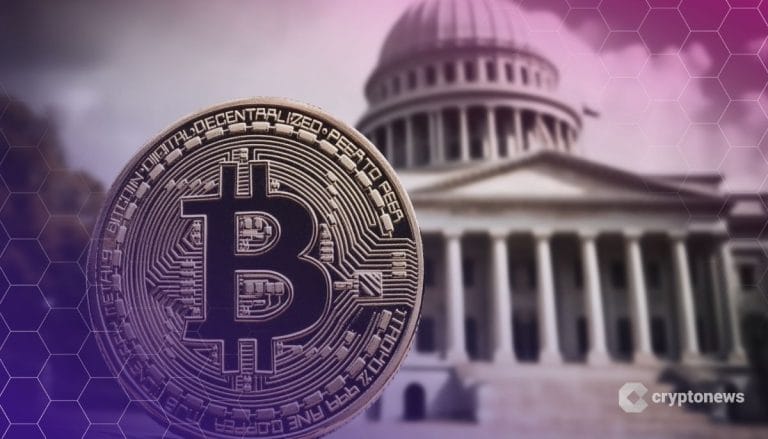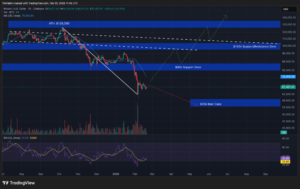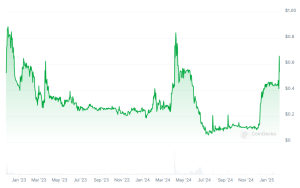Last updated:
 Why Trust Cryptonews
Why Trust Cryptonews
Ad Disclosure
We believe in full transparency with our readers. Some of our content includes affiliate links, and we may earn a commission through these partnerships. Read more

Missouri Representative Ben Keathley has introduced a bill aimed at incorporating Bitcoin (BTC) into the state’s financial strategy.
House Bill 1217 (HB 1217), filed on February 6, proposes the creation of a Bitcoin Strategic Reserve Fund as a hedge against fiat currency inflation and a means to diversify Missouri’s investment portfolio.
If passed, the bill would grant the Missouri state treasurer the authority to receive, invest, and hold Bitcoin under specific conditions.
Missouri’s Bitcoin Fund May Accept Donations from Government Entities
The fund could accept BTC donations from government entities and residents, broadening its sources beyond state allocations.
Additionally, the bill mandates that all government entities in Missouri must accept cryptocurrency for approved transactions, including taxes, fees, and fines.
However, individuals making these payments would be responsible for covering transaction fees.
Keathley’s proposal emphasizes a long-term approach to Bitcoin holdings. The bill requires that all BTC collected by the state be held for at least five years before any liquidation can take place.
This strategy aligns with a broader trend among U.S. states exploring digital asset reserves as part of their financial planning.
HB 1217 also seeks to expand Missouri’s investment authority, allowing the state treasurer to purchase, invest in, and hold Bitcoin using state funds.
The proposed legislation is set to take effect on August 28, pending further discussions. However, at the time of writing, a second hearing had not yet been scheduled.
Utah One Step Closer to Becoming First US State with Bitcoin Reserve
Missouri’s move follows a similar initiative in Utah, where House Bill 230 recently cleared the state’s House of Representatives on February 6 and is now moving to the Senate.
Utah’s bill, introduced by Representative Jordan Teuscher, would allow the state treasurer to allocate up to 5% of public funds into Bitcoin, stablecoins, and other high-cap digital assets.
According to data from bitcoinlaws.io, 17 U.S. states are actively discussing Bitcoin reserves, with Arizona, Kentucky, New Hampshire, North Dakota, Wyoming, and South Dakota among those considering similar legislation.
Utah remains the frontrunner, with its bill just two steps away from enactment.
However, not all states have embraced the idea.
North Dakota lawmakers recently rejected a proposal (HB1184) that would have allowed investment in crypto and precious metals, with the bill failing in a 32-57 vote on January 31.
In another positive development, US spot Bitcoin exchange-traded funds (ETFs) saw inflows totaling nearly $5 billion in January, a strong start that could push them toward $50 billion or more by the end of the year, according to Bitwise CIO Matt Hougan.
As reported, Hougan noted that spot Bitcoin ETFs absorbed $4.94 billion in January alone, an annualized pace of approximately $59 billion.

















